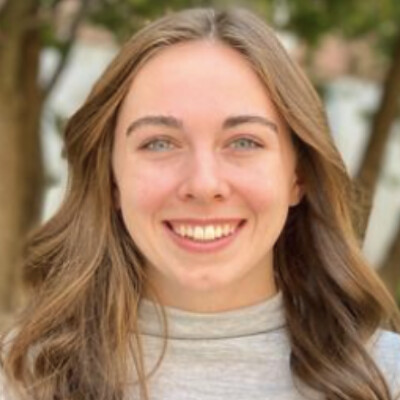Recognizing that in 2020 we would have a new Health Science Education Center (HSEC), we knew this was an opportunity to study the effects of the building on the informal interactions that students have with each other. The 7-story building has state-of-the-art classrooms, a simulation center, an interprofessional lounge, and an interprofessional study area for all schools to use rather than learning and gathering in highly distributed and siloed sites.
Our primary questions were whether the HSEC building changes the nature of the interactions among health profession students. We invited students from multiple professions to complete a survey in the spring of 2019, the year before the opening of the building, and then we also sent surveys to second-year students from those same professions in the spring of 2022, 2023, and 2024. The HSEC opened in June 2020 however it was largely not used in the 2020 – 2021 academic year.
As was hypothesized we saw statistically significant increases in informal interactions such as seeking out students from other professions when experiencing loneliness, anxiety, or stress and when they need school-related advice. They also had a higher frequency of conversations with students from other professions.
We also know from focus groups done of students using the lounge and study space that 91% felt the space was welcoming (except for there were not enough chairs). Of those who participated in programming in these spaces (e.g., wellness, student groups), the majority (64%) stated they appreciated the opportunity to connect with health profession students from outside of their program.
The unique opportunity afforded us by having a new interprofessional education center allowed us to study the impact of space on informal interactions. We know that these informal interactions help students form relationships with other professions and aids in the development of their dual identity not only as a member of their profession but also as a member of an interprofessional team. Barriers and siloes begin to fall when people from one profession learn to understand those in other professions as people and not just as a named profession, which come with their own biases and stereotypes. Therefore, the building becomes part of the unspoken, hidden curriculum in our interprofessional education program.
In this talk, we will present these findings and then hope to foster discussion about how the hidden curriculum embedded in an interprofessional learning space can be fostered and further studied.
In support of improving patient care, this activity is planned and implemented by The National Center for Interprofessional Practice and Education Office of Interprofessional Continuing Professional Development (National Center OICPD). The National Center OICPD is accredited by the Accreditation Council for Continuing Medical Education (ACCME), the Accreditation Council for Pharmacy Education (ACPE), and the American Nurses Credentialing Center (ANCC) to provide continuing education for the healthcare team.
As a Jointly Accredited Provider, the National Center is approved to offer social work continuing education by the Association of Social Work Boards (ASWB) Approved Continuing Education (ACE) program. Organizations, not individual courses, are approved under this program. State and provincial regulatory boards have the final authority to determine whether an individual course may be accepted for continuing education credit. The National Center maintains responsibility for this course. Social workers completing this course receive continuing education credits.
The National Center OICPD (JA#: 4008105) is approved by the Board of Certification, Inc. to provide continuing education to Athletic Trainers (ATs).
This activity was planned by and for the healthcare team, and learners will receive Interprofessional Continuing Education (IPCE) credit for learning and change.


Physicians: The National Center for Interprofessional Practice and Education designates this live activity for AMA PRA Category 1 Credits™. Physicians should only claim credit commensurate with their participation.
Physician Assistants: The American Academy of Physician Assistants (AAPA) accepts credit from organizations accredited by the ACCME.
Nurses: Participants will be awarded contact hours of credit for attendance at this workshop.
Nurse Practitioners: The American Academy of Nurse Practitioners Certification Program (AANPCP) accepts credit from organizations accredited by the ACCME and ANCC.
Pharmacists and Pharmacy Technicians: This activity is approved for contact hours.
Athletic Trainers: This program is eligible for Category A hours/CEUs. ATs should claim only those hours actually spent in the educational program.
Social Workers: As a Jointly Accredited Organization, the National Center is approved to offer social work continuing education by the Association of Social Work Boards (ASWB) Approved Continuing Education (ACE) program. Organizations, not individual courses, are approved under this program. State and provincial regulatory boards have the final authority to determine whether an individual course may be accepted for continuing education credit. The National Center maintains responsibility for this course. Social workers completing this course receive continuing education credits.
IPCE: This activity was planned by and for the healthcare team, and learners will receive Interprofessional Continuing Education (IPCE) credits for learning and change.
Learners can claim CE credit by completing the Daily Evaluation.





